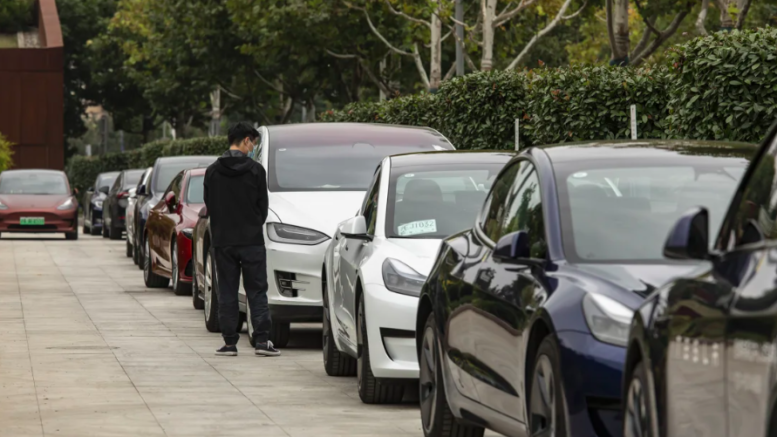Tesla faced a significant setback on Thursday as its shares plunged by 12%, resulting in an $80 billion loss in market value. This decline, the worst for the company in 21 months, followed warnings of slowing growth in electric car sales and the emergence of an existential threat from Chinese rivals. The stock closed at its lowest level since December 2022, marking a cumulative market capitalization drop of $210 billion since the beginning of 2024.
During an earnings presentation, Tesla, the world’s most valuable automaker, cautioned that its sales growth for the year “may be notably lower” than previous periods as it focused on developing the “next-generation” vehicle, likely a lower-priced model. Despite reporting a substantial 38% increase in deliveries in the past year, Tesla fell short of its earlier target of achieving a 50% annual growth rate averaged over several years.
Tesla’s financial results for the last quarter disappointed investors, with adjusted earnings per share down 40% compared to the previous year. The revenue, while reaching over $25 billion, fell below market forecasts. This marked the second consecutive quarter where the company failed to meet earnings forecasts by analysts, following a string of better-than-expected results from early 2021 until the first half of 2023 when the stock doubled in price.
Tesla’s operating margin also faced pressure, nearly halving to 8.2% from the same period in 2022, partially due to increased costs related to the production of the Cybertruck pickup, which entered production at the end of 2023.
Analysts expressed disappointment with the lack of clarity from Tesla’s earnings call, citing minimal answers regarding shrinking margins and the ongoing challenges facing the company. Tesla’s price cuts over the past year, aimed at boosting sales amid growing competition, have not yielded the expected results.
Elon Musk acknowledged the threat from Chinese automakers, stating that they are “the most competitive car companies in the world” and could potentially dominate the global market without trade barriers. The intensifying competition, particularly from China’s BYD, led European officials to launch an anti-dumping investigation, potentially resulting in higher tariffs on car imports from China.
Despite the recent challenges, some analysts remain optimistic about Tesla’s future. The launch of a lower-cost vehicle in the coming years is seen as a potential catalyst for the company. Additionally, expectations of a more favorable economic environment, including anticipated decreases in interest rates, could work in Tesla’s favor, particularly as consumers often purchase vehicles on finance.

